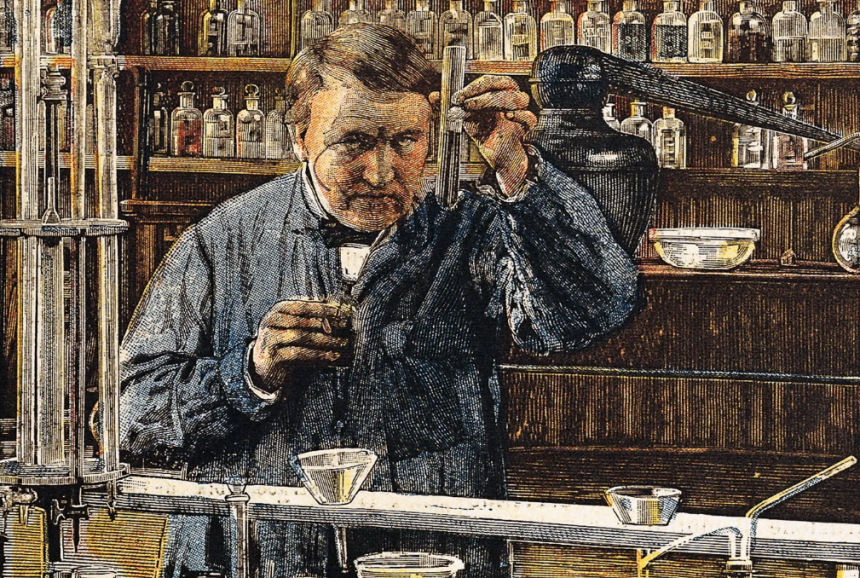History is filled with ideas that seemed bizarre or outright absurd at first but ended up reshaping the way we live, work, and think. The following list showcases 15 inventions and innovations that initially faced skepticism, laughter, or outright rejection, only to become wildly successful and indispensable. These stories remind us that no idea is too strange to spark a revolution.
#1: Google Street View – Mapping the Unthinkable

Photographing every street in the world sounded like a logistical nightmare and a waste of resources when Google first proposed it. Critics doubted its practicality, privacy advocates raised alarms, and some simply laughed at the audacity of the project. Yet today, Google Street View has revolutionized navigation, travel planning, and even real estate. What started as a wild idea is now an essential part of everyday life.
#2: Inflatable Tanks – WWII’s Ghost Army

During World War II, the Allies deployed inflatable tanks and dummy equipment to mislead enemy forces. These decoys, part of the “Ghost Army,” seemed laughable at first—after all, who would fall for fake equipment? But the ruse worked, diverting enemy attention and saving countless lives. This clever strategy proved that sometimes, deception is a powerful weapon.
#3: Wikipedia – A Free Encyclopedia Anyone Can Edit

In 2001, the idea of a user-generated, freely editable encyclopedia seemed preposterous. Critics predicted chaos, misinformation, and a lack of credibility. Yet Wikipedia has become one of the most visited websites globally, demonstrating the potential of collective knowledge and collaboration. Despite its imperfections, it remains a cornerstone of the internet.
#4: Crocs – From Laughable to Lovable

When Crocs first hit the market, their clunky, plastic design drew ridicule. Fashionistas dismissed them as ugly, and even the creators doubted their mainstream appeal. Yet their comfort and practicality won over millions, turning Crocs into a global phenomenon with fans from all walks of life—including celebrities.
#5: Toast – From Survival Food to Breakfast Staple

Toast may seem like a simple breakfast food, but its origins are deeply practical. Ancient Egyptians used fire to dry bread, preserving it for longer periods. Over centuries, the practice evolved into a culinary tradition. Today, toast is a beloved comfort food, proving that sometimes the simplest solutions have the longest-lasting impact.
#6: Minecraft – Blocky Brilliance

When Minecraft was first introduced, its retro, blocky graphics seemed outdated in a world of high-resolution games. Critics scoffed, but the game’s open-ended creativity and endless possibilities captivated millions. Minecraft is now one of the best-selling games of all time, proving that simplicity and imagination can trump flashy visuals.
#7: The Portable Blow-Up Tank

Another entry from WWII, portable inflatable tanks were considered a strange addition to military strategy. However, they played a critical role in deception tactics, helping to confuse enemy forces and protect real troops. These inflatable decoys proved that creativity in warfare could yield significant results.
#8: FedEx – A “C” Grade Idea

In 1965, Frederick Smith wrote a college paper proposing an overnight delivery service based on a hub-and-spoke model. His professor wasn’t impressed, giving him a mediocre grade. Smith turned his idea into FedEx, revolutionizing logistics and delivery services and proving that even dismissed ideas can soar.
#9: Bottled Water – From Luxury to Necessity

When bottled water first appeared, people mocked the idea of paying for something they could get for free from a tap. But clever marketing and convenience turned bottled water into a multibillion-dollar industry. While environmental concerns remain, it’s hard to deny the success of this once-ridiculed concept.
#10: Google – “Just Another Search Engine”

When Google launched in 1998, critics questioned the need for another search engine in an already crowded market. However, Google’s simple interface and superior algorithms quickly set it apart, making it the dominant player in the tech world. Today, it’s hard to imagine the internet without it.
#11: Sliced Bread – “The Best Thing Since…”

Before pre-sliced bread became common, people balked at the idea, questioning its necessity. Why not just slice it yourself? But when the first commercial slicing machine debuted in 1928, it revolutionized the food industry, giving birth to the famous phrase, “the best thing since sliced bread.”
#12: The Steam Engine – A Revolution Dismissed

Napoleon reportedly dismissed the steam engine, calling it impractical for ships. Yet, the technology powered the Industrial Revolution, transforming transportation and industry. It’s a classic example of how even great leaders can underestimate groundbreaking inventions.
#13: Online Shopping – The Death of Brick-and-Mortar?

In the early days of the internet, many doubted that people would buy items without seeing them in person. Fast forward to today, and online shopping is a multitrillion-dollar industry that has reshaped global commerce.
#14: Delivery Apps – Convenience Over Cost

The gig economy model of food and grocery delivery sounded unsustainable to many. Could drivers be fairly compensated while keeping prices competitive? Yet, services like DoorDash, Uber Eats, and Instacart have thrived, showing that convenience often outweighs cost concerns for consumers.
#15: SpaceX – The Private Space Pioneer

The idea of a private company successfully launching rockets into space sounded absurd in the early 2000s. Elon Musk’s SpaceX faced countless skeptics, but the company has since achieved numerous milestones, including reusable rockets and partnerships with NASA. It’s a testament to daring visions and persistence.
These 15 examples show that some of the most transformative ideas in history began as seemingly ridiculous notions. The lesson? Don’t be afraid to dream big and think outside the box—you might just change the world.





